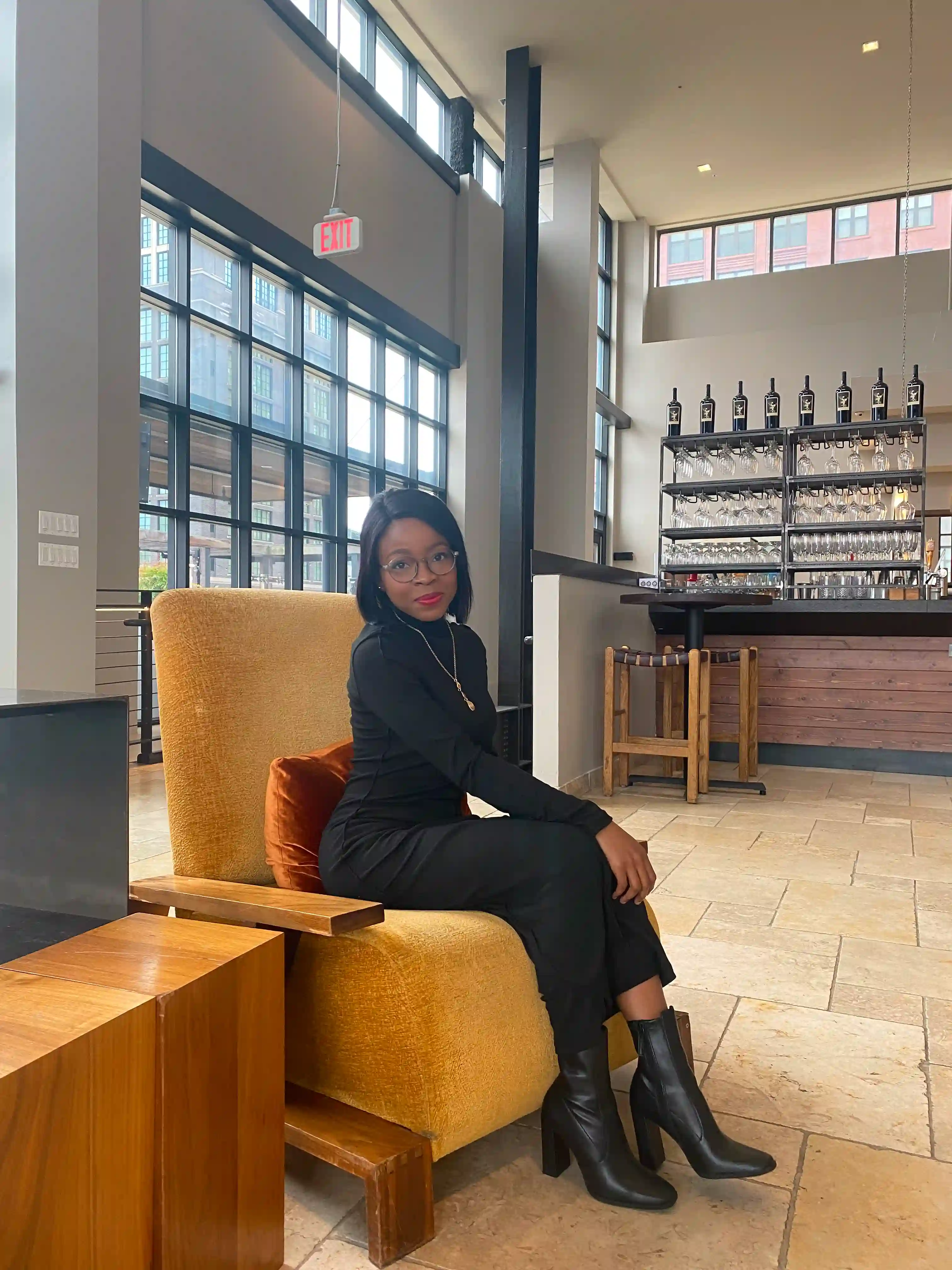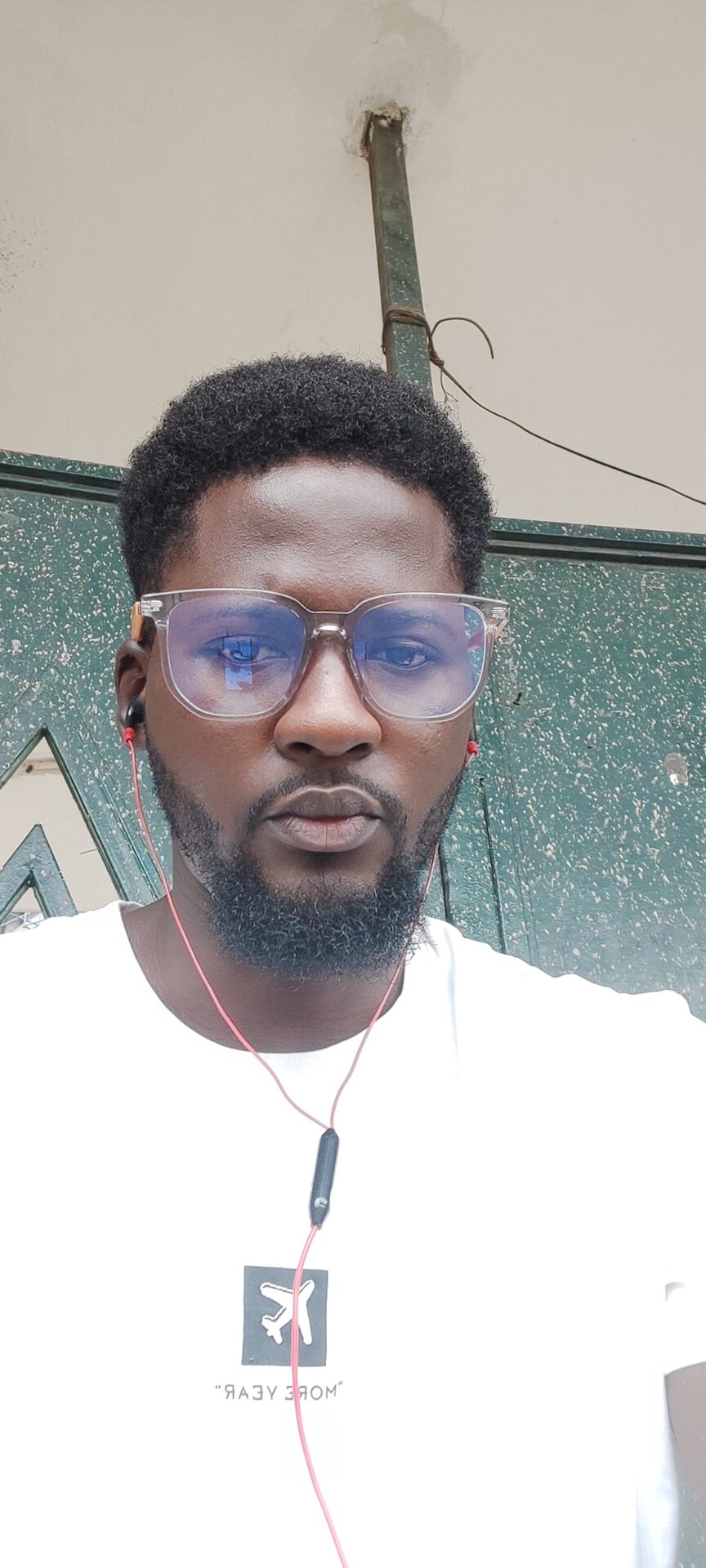
Top 30 Cartoon Characters That Were Villains
Our list rounds up the top 30 cartoon characters that were villains, each one more wonderfully wicked than the last.
Interview
Womanhood isn’t straightforward; what you believe defines a woman can differ from what someone else feels.

Only a handful of months to the release of her debut novel, Your Tomorrow Was Today, Oyindamola Dosunmu answers some of our burning questions about her book, provides some insight into her writing style, and dives deeply into what Your Tomorrow Was Today means for her and readers.
Your Tomorrow Was Today is your debut novel, a quite stunning one at that. What inspired the story, and how did your experiences growing up in Lagos shape the creative process?
Thank you! I wouldn’t have my story without my experiences. I grew up in middle-class Lagos (Surulere and Satellite Town), with exposure to both ends of the income spectrum. As a Nigerian living in Nigeria, you’re daily faced with moral dilemmas, providing ample material to explore for a lifetime. It’s no surprise that many Nigerians have gone on to produce remarkable work on the global stage. That said, I was inspired to write this story because we need to keep speaking out against the systemic ways society confines women. Women are often expected to stay within spoken and unspoken limits, which causes more harm than good for women and society as a whole.
Who are your favorite authors? Would you say that your writing style was inspired by them?
Chigozie Obioma is king! I also love Chimamanda Adichie and Tsitsi Dangarembga. Their books make me giddy. I read a fantastic line, then I pause to think about my life. Yes, I firmly believe that my writing style is inspired by them, mainly because I love lyrical writing and their perspectives on the human experience.
Outside of writing, what personal, exciting tidbits can we know about you?
I hope it doesn’t sound cliché, but I love reading. I spend the rest of my time binging anime and YouTube movie reviews.

The ending of your debut novel, Your Tomorrow Was Today, is sure to be a topic for hot conversation among readers long after the book is released. Do you adhere to a particular philosophy with regard to book endings or let the course of the story determine its conclusion?
I’m interested in human experiences and aim to reflect realism in my stories. I have an end in mind when I gather initial ideas, but stories also have their own voice, and it’s essential to let the course of the story determine its ending if I want to stay true to my work.
If the reading experience of Your Tomorrow Was Today was any bit as profound as its writing, then you surely went through several emotions during the process. How did you keep going, and how exactly did the story make you feel once the words were out of your head and onto the pages?
The first emotion I felt was relief; it’s not easy to bring any story to life. Some parts of the story were tough, and I felt righteous anger toward some characters and society. Still, certain sections called for honest self-reflection, especially Karen’s development throughout the book. Overall, Your Tomorrow Was Today resonated with me because I am a woman who has experienced unfair treatment because of my gender. I understand how challenging womanhood can be, especially considering Nigeria as a reference point.
As a new author who’s written such an intriguing debut work, what advice do you have for upcoming creatives looking to publish their own work?
To be a writer, you must always be a learner. Be an avid reader; stay curious and open-minded. Try to set your ego aside, as you might not always get the feedback you believe your work deserves. Also, take your time, especially when editing. You should take the time to write and publish because you and your readers deserve the best quality.
Which of the characters in the book was your favourite, and who did you dislike? And, why?
It goes without saying that I dislike Bid the most. As for which character in the book was my favorite, that’s a tricky question! I think I’m most partial to Karen because I love gray characters. Karen’s decisions in the book are divisive, depending on a reader’s worldview, but I believe her choices until the end reflect her reality.
Your Tomorrow Was Today explores several themes, including marital abuse, trauma, and patriarchy, particularly in professional spaces. In light of the experiences of the main character, how do you think the latter theme affects and shapes the personality of ambitious women and their romantic relationships with the opposite sex?
It definitely toughens ambitious women. There are numerous research articles discussing the gender divide in professional spaces. We see tasks ascribed to women and men from childhood based on gender norms, and this bleeds into everything, including the workplace. There’s a subconscious bias existing in professional spaces, worse in a patriarchal society like Nigeria. For instance, I worked at an agency once, and I was told to wear skirts to show off my legs. Another time, I was told I was too fragile to be a real estate agent because I’m a woman and petite. Women have to continuously prove their ‘worth’ to be given the same respect as men (sometimes that is still not enough), yet they’re perceived as masculine for wanting certain things or having a clear vision for their lives. I don’t view a woman’s ambition as a negative trait in romantic relationships with men. Why should it, if your partner has healthy self-esteem?

With your debut novel guaranteed to draw the interest of readers and develop into an eager fanbase, do you have plans to write more books in the near future?
Yes, please, I love an eager fanbase! Yes, I do. I’m working on two ideas right now. The first is loosely based on the chaotic lives of rich people, and it’s almost finished with the first round of editing, while the other is a love story in its draft stages. I don’t know when they’ll be published, but it will happen.
Do you have any quirky writing rituals or habits?
Would typing away under a blanket tent on my bed count?
If your book had a soundtrack, which three songs would be on it?
I’m going to mash all of Wizkid’s songs into one track because I love his music, Higher by Tems, and Iris by Goo Goo Dolls.
What are your favourite books?
This is tough: The Fishermen by Chigozie Obioma made me ugly cry, Americanah by Chimamanda Adichie, and Transcendent Kingdom by Yaa Gyasi. Never Let Me Go by Kazuo Ishiguro deserves honorable mention; it’s breathtaking.
Having spent some time in Nigeria before relocating to the USA, what have you observed in the differences between the publishing industry and reading market here in Nigeria, and in your present location?
I was born and raised in Nigeria until I relocated to the USA a few years ago. Publishing in both countries is a game of patience. Western publishing has its advantages. For one, it reaches a larger international audience. However, Western publishing must embrace a more diverse range of literature if it truly aims to close the gap with historically marginalized voices in both the publishing industry and the reading market. Meanwhile, although Nigerian publishing is relatively newer and growing, the Nigerian reading market remains vibrant and open to diverse literature.
The primary characters in Your Tomorrow Was Today are of Southeastern Nigerian descent, while you are from the West. What inspired the choice to write about a culture different from your native Yoruba?
I’ve always been surrounded by different cultures; my extended family, for example, includes people from various backgrounds. I’m from Lagos State, a city known for its diversity, a trait I reflect in my characters, who aren’t limited to just Yoruba culture. Lagos also plays a significant role in my story because it highlights the differences between Karen’s past and present. Additionally, the Igbo culture traditionally emphasizes historical issues surrounding the preference given to the male offspring, which is a central part of Omo’s history, so it felt appropriate to include it.
Regardless of their sentiment on each character, what lessons on womanhood are you keen for readers of Your Tomorrow Was Today to learn?
I want readers to think about what womanhood means to them. Womanhood isn’t straightforward; what you believe defines a woman can differ from what someone else feels. Your idea of a happy ending isn’t necessarily the same as someone else’s, whether you agree or not. We must never forget that every woman has the right to define what womanhood means to her.

The Tyrant Overlord. Fantasy buff and avid football fan.

Our list rounds up the top 30 cartoon characters that were villains, each one more wonderfully wicked than the last.

DC is great at making comics and animated movies, while the MCU has the upper hand in its cinematic aspects

Discover the best apps to read books for free in 2025. Access thousands of free e-books and audiobooks on your phone or tablet. ...

There are some outright funny cartoon characters who exist solely to crack you up, loud, hard, and with zero apology.

Things Fall Apart is for the colonizers as well as the colonized, helping to understand the role of colonialism in the realization...

While many of the Nollywood movies on our list are quite old, it’s a testament to the capabilities of the industry’s p...

While this isn’t an exhaustive list, it comprises some of the most popular mythical creatures from around the world.